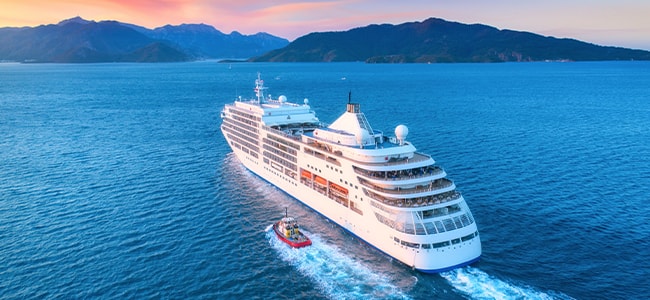Maritime Law Center

Maritime law, or admiralty law, regulates shipping, navigation, commerce, towage, recreational boating, and piracy by private entities on domestic and international waters. It covers both natural and man-made navigable waters, such as rivers and canals. It also covers persons and contracts related to maritime activities, such as seamen, shipping insurance contracts and maritime liens.
Maritime law developed early on in history. Much of today's maritime laws derive from the Rules of Oleron, which Eleanor of Acquitaine had promulgated around 1160. In the United States, admiralty law evolved more directly from British admiralty courts, which were present in most of the American colonies and functioned separately from courts of law and equity. Because these admiralty courts did not include trial by jury, the British used them to enforce the unpopular Stamp Act, and thus were a factor in precipitating the American Revolution. Several central figures to the American Revolution were admiralty and maritime attorneys, including Alexander Hamilton in New York and John Adams in Massachusetts.
Maritime Injuries
Parties generally have no right to trial by jury in admiralty cases before a U.S. federal court; however, the Jones Act permits jury trials for personal injury claims brought by a seaman. In state courts, maritime claims may be tried before juries. A state court hearing a maritime case must apply maritime law, even if the law conflicts with the law of the state.
Generally, seamen who sustain injuries while in the service of the ship may recover for their injuries under the doctrine of unseaworthiness, the principle of maintenance and cure, and the Merchant Marine Act. The doctrine of unseaworthiness holds a shipowner liable if the ship, or its appliances, is unseaworthy and caused the seaman's injuries. The principle of maintenance and cure is similar to workers' compensation and requires a shipowner—regardless of fault—to pay for medical care and basic living expenses for any seaman injured on a ship. The Merchant Marine Act, also known as the Jones Act, offers seamen protection against employer negligence of the same type afforded to railroad employees under the Federal Employers Liability Act (FELA).
Not all workers onboard a craft qualify as "seamen" for the purposes of unseaworthiness, maintenance and cure, or the Jones Act remedies. To qualify as a "seaman," a worker must work a certain percentage of time onboard a specific vessel or a fleet of vessels "under common ownership or control." The Longshore and Harbor Workers' Compensation Act (LHWCA) covers most workers whose jobs affect shipping upon navigable waters but do not qualify as seamen. The Death on the High Seas Act provides limited remedies for the survivors of people who die more than a certain distance from the shore.
Injuries to Passengers
Shipowners must exercise reasonable care when transporting passengers, who may sue if the shipowner's negligence caused their injuries. While suits generally must be brought within three years, most cruise lines designate within the passenger ticket that cases between the cruise line and its passengers be heard under Florida law, which provides a one-year statute of limitations. Most cruise line passenger tickets also require that suit be brought in either Miami or Seattle.
Jurisdiction
In the United States, admiralty jurisdiction has expanded from just American tidal waters to any waters navigable within the United States for interstate or foreign commerce. In such waters, admiralty jurisdiction includes all maritime matters, even if they do not specifically involve interstate commerce, such as recreational boating.
Congress regulates admiralty under the Commerce Clause of the U.S. Constitution and federal courts have original jurisdiction over maritime matters. This power stems from the Judiciary Act of 1789 and from Article III, § 2 of the U.S. Constitution. However, most parties may bring an admiralty case before a U.S. federal court or a state court.
Under the Savings to Suitors clause, U.S. federal courts and state courts maintain concurrent jurisdiction over most maritime claims. Depending on the remedy sought, the law also requires parties to file some maritime actions in federal courts. This includes actions seeking to partition ownership of a ship, petitions to limit a shipowner's liability to the value of a ship after a large accident, and suits seeking to arrest ships to enforce maritime liens and mortgages. Still, parties may bring most maritime actions—such as suits for cargo damage, seaman injuries, vessel collisions, wake damage, and maritime pollution— in either federal court or state court.
International Conventions
The International Maritime Organization, established by the United Nations in 1958, has prepared many international conventions governing international maritime safety and environmental issues. Individual nations sign and then enforce these agreements.